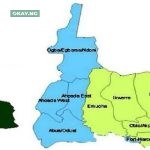In a significant move aimed at bolstering the efficiency and reliability of Nigeria’s power sector, the federal government has officially unbundled the Transmission Company of Nigeria (TCN) and inaugurated the board and management of the Nigerian Independent System Operator (NISO). This development, announced recently, signals a pivotal step in the ongoing reforms designed to address the persistent challenges plaguing the nation’s electricity supply.
The unbundling of TCN, a long-anticipated reform, is expected to create a more streamlined and accountable structure within the power transmission framework. The NISO, now operating as an independent entity, will be responsible for the real-time balancing of electricity supply and demand, ensuring grid stability and operational efficiency.
“This is a crucial milestone in our journey towards a more robust and sustainable power sector,” stated a senior government official during the inauguration ceremony. “The separation of the system operator from the transmission company will enhance transparency and accountability, ultimately leading to improved service delivery for Nigerians.”
The inauguration of the NISO board and management marks a critical phase in implementing the Electric Power Sector Reform Act (EPSRA) of 2005. This Act envisioned a competitive electricity market, with clearly defined roles for generation, transmission, and distribution companies. The NISO’s role is to ensure a balanced, reliable and efficient national grid.
Read Also: Power Grid Collapse: Nigeria Loses 165MW After Towers Fall in Storm
From my perspective, witnessing this move, it is clear that the intent is to move beyond mere policy and into practical application. The challenges facing the Nigerian power sector have been well-documented, including frequent grid collapses, inadequate infrastructure, and financial constraints. These issues have hindered economic growth and negatively impacted the daily lives of millions of Nigerians.
The newly inaugurated NISO board is expected to bring fresh perspectives and expertise to the management of the national grid. The board’s mandate includes:
- Ensuring the efficient and reliable operation of the electricity grid.
- Balancing supply and demand in real-time.
- Facilitating market transactions and ensuring fair competition.
- Implementing best practices in grid management and technology.
Experts in the energy sector have lauded the government’s decision, emphasizing the potential for increased investment and improved service delivery. “An independent system operator is essential for creating a level playing field and attracting private sector investment,” noted energy analyst, Dr. Adeola Oni. “This move could significantly enhance the efficiency of the Nigerian electricity market.”
The government’s commitment to reforming the power sector is evident in its continued efforts to address the multifaceted challenges. However, the success of these reforms will depend on effective implementation and sustained commitment from all stakeholders.
The unbundling of TCN and the inauguration of the NISO board represent a significant step forward in Nigeria’s quest for a stable and efficient power sector. As the nation moves forward, the focus will remain on ensuring that these reforms translate into tangible improvements in the lives of Nigerians.













